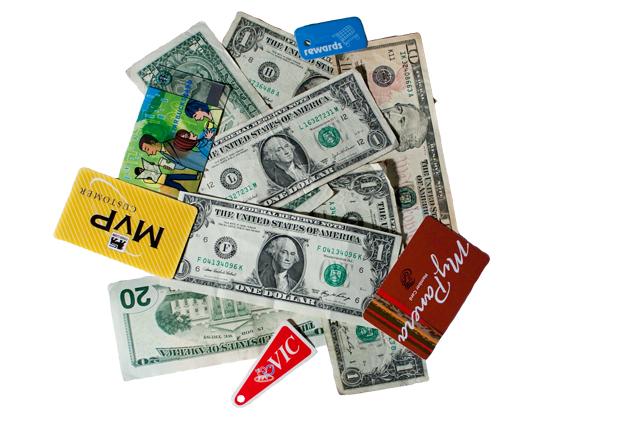
© Student Media 2010
The question of whether money can buy happiness has plagued humanity for ages. Now, University faculty can point students toward an answer.
Stacy Wood, a Langdon Distinguished Professor of Marketing in the University’s College of Management, is a consumer behavior researcher.
“Happiness is never available — for a limited time only — for just four easy installments of $29.99,” Wood said. “If you look at all the well-being research conducted in countries all around the world, you see that increasing wealth does not lead to increasing day-to-day happiness once you get above a reasonable living wage. People making millions a year aren’t really happier than people making a nice salary like $80,000.”
Wood said the fascinating thing is that as consumers, we are bad at predicting how things impact our feelings.
“For example, we think that winning the lottery would make us ecstatic for years or buying a sports car would give us a new and long-lasting zest for life. Unfortunately, we acclimate quickly to good things and take them for granted,” Wood said.
Wood’s studies have found that little things can have a surprisingly powerful impact on our moods.
“In our study, we found that little things like buying yourself cheap flowers at the grocery store made people feel significantly happier for a longer time than they expected,” Wood said. “The upside is that we can be mindful about this bias and use it to avoid big purchases that may not have the impact we hope for and to seek out little purchases that can cheer us more than we would expect.”
Wood has conducted research with Jim Bettman of Duke University; their work was published in the Journal of Consumer Psychology in 2007 and was a runner-up for the Park Prize for most outstanding contribution to consumer psychology in 2010.
Amy Halberstadt, Alumni Distinguished Undergraduate Professor of Psychology, had a somewhat different viewpoint.
“People need some basic funds with which to feel secure about achieving their physical well-being and the well-being of their families,” Halberstadt said. “Once basic needs are met, however, other aspects begin to become relevant.”
Halberstadt cited past experiments to show the varying effects money has on happiness.
“Certainly we are all very happy when money falls into our lap… that is a very pleasant thought experiment,” Halberstadt said. “Yet in other research, when people were asked to think about their own income, or were accidentally shown pictures of money, they spent less time savoring a piece of chocolate and exhibited reduced enjoyment of [the chocolate] compared with participants not exposed to reminders of wealth. These studies suggest that thinking about money may undermine the simple pleasures of life.”
Halberstadt also noted that spending money can have a positive effect on a person’s happiness.
“We know this effect is not the consequence of happier people spending more money on others, but really does seem to be due to the actual expenditure of money on others,” Halberstadt said. “This suggests that money also makes us happy by giving it away.”
Stephen Margolis, alumni distinguished professor of economics, noted that this question of money buying happiness has become “trendy” among a group of economists.
“They don’t seem to be getting very far with it. I suspect that the question, as it is usually posed, is too vague to prompt a meaningful response,” Margolis said.
All other things being equal, money can make people happier, Margolis said.
“Money increases the options we have and also can provide a degree of security. Someone who has accumulated substantial savings is protected a bit from many financial setbacks. A leaking roof or an unanticipated car repair does not become a personal crisis,” Margolis said. “Knowing that you have enough money to get through a rough patch is certainly a comfort, one kind of happiness.”
Margolis said in addition to security, money also provides freedom to peruse interests.
“People generally say that they would prefer to have more money to less. We should probably take them at their word,” Margolis said. “I’ve never known anyone to celebrate losing his wallet.”
Stephen Odom, a freshman in electrical engineering, said money cannot buy happiness.
“When you buy something you really want and then you realize that you didn’t like it as much as you thought you did, you’re not really happy. You’re just upset. Then you want more and you get upset and upset and upset,” Odom said.
Kurt Saenger-Heyl, a freshman in computer engineering, said the answer to whether money can buy happiness depends on a person’s definition of happiness.
“Some define happiness as monetary wealth and goods. Some people find happiness in non-monetary objects and those can’t be bought as easily,” Saenger-Heyl said.
So then, can money buy happiness? Maybe. While money most likely cannot buy happiness directly, it can bring about happiness in forms of security from costly financial setbacks or freedom to pursue a hobby.
According to studies, money can either be a distraction from happiness, or can be spent on others to bring about happiness. It is all about how a person uses their resources.
What is the meaning of life? Are you a University faculty, alumni, staff or student with the answer? If so, please contact Zachary Diezel at zjdiezel@ncsu.edu.